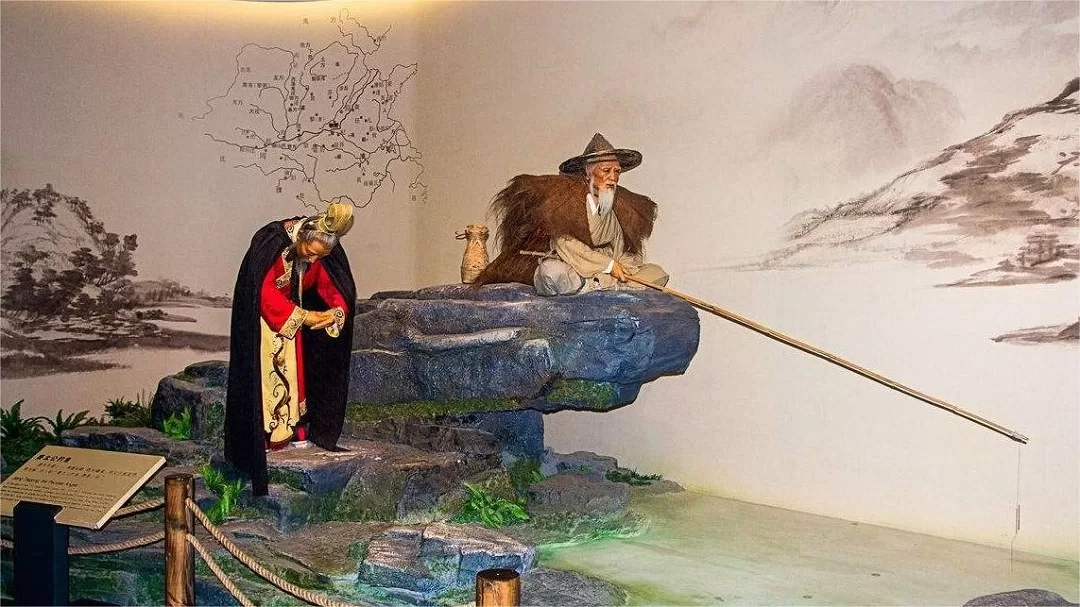Jiang Ziya (approximately 1128–1016 BCE), also known as Jiang Taigong, Shi Shangfu, Taigong Wang, and Lu Wang, was a prominent figure in ancient Chinese history. His given name was Shang, and he was commonly addressed as Ziya, with the courtesy name Feixiong. Born in the area that is now Xuchang, Henan, or possibly Weihui, Henan, he played a pivotal role during the end of the Shang Dynasty and the establishment of the Western Zhou Dynasty.
Jiang Ziya began his career as a government official during the waning years of the Shang Dynasty. Witnessing the tyrannical rule of King Zhou, he chose to resign from his official position and traveled to the state of Fang to advocate for a virtuous ruler. Hearing of the departure of Ji Chang, the Western Duke, from the Zhou state due to similar reasons, Jiang Ziya decided to live in seclusion at Poxie, already in his seventies. Another account suggests that Jiang Ziya was expelled from his home after marrying into a family and being unable to support himself. In this version, he resorted to fishing on the banks of the Wei River.
Legend has it that while Jiang Ziya was fishing with a straight hook, a woodcutter observed his technique and offered to teach him a more effective way to catch fish. However, Jiang Ziya responded, “My intention is not on the fish. I prefer to take directly, not to seek through indirect means. I am not interested in ornamental scales; I only fish for kings and nobles.” The story of Jiang Ziya’s fishing prowess spread far and wide, catching the attention of Ji Chang, who led his ministers to invite Jiang Ziya to return to public life.
Upon the ascension of King Wu, the son of Ji Chang, Jiang Ziya was appointed as the national teacher. He played a crucial role in the Battle of Muye, contributing significantly to the overthrow of the Shang Dynasty. As a reward for his service, he was granted the title of Duke of Qi and established his capital in Yingqiu, now located in Shandong. This marked the foundation of the Qi state.
Jiang Taigong continued to serve as an advisor to four successive kings: King Wen, King Wu, King Cheng, and King Kang of the Zhou Dynasty. He excelled in both military and political affairs, demonstrating his ability to maintain peace and govern effectively. After the division of land during the enfeoffment, Jiang Taigong became a key figure in the creation of the Qi state and a pioneer of Qi culture. His written work, “The Six Secret Teachings,” has been passed down through generations.
In the Tang Dynasty, to honor Jiang Ziya’s virtues, Emperor Taizong built the Taigong Temple at the site of his legendary fishing spot. Later, in the reign of Emperor Suzong, Jiang Ziya was posthumously conferred the title of King Wucheng. This recognition contributed to the growing reverence for Jiang Ziya, and subsequent dynasties continued to expand and embellish temples dedicated to him.
Throughout the Ming and Qing dynasties, various temples and halls at the Fishing Platform underwent renovations and enhancements, highlighting the enduring legacy of Jiang Ziya in Chinese history and culture. The reverence for Jiang Ziya and his contributions to the founding of the Qi state remain embedded in Chinese folklore and historical accounts.


